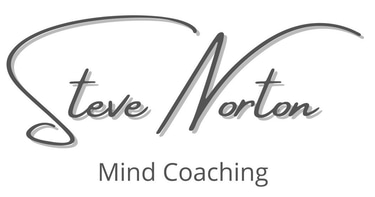5 Symptoms That Indicate You Have Health Anxiety
6/16/20244 min read


5 Symptoms That You Have Health Anxiety
Introduction
Health anxiety, often referred to as hypochondria or illness anxiety disorder, is a condition where an individual is excessively worried about having a serious illness. This anxiety can lead to significant distress and impact daily life. In this article, we will explore five common symptoms of health anxiety, delve into its causes, discuss diagnostic methods, and offer strategies for managing and overcoming this challenging condition.
Types and Categories
General Health Anxiety
General health anxiety involves a broad and constant worry about health, regardless of the presence of specific symptoms. Individuals with this type tend to be anxious about various aspects of their health, frequently changing concerns from one part of their body to another.
Specific Health Anxiety
Specific health anxiety focuses on a particular illness or a specific set of symptoms. For example, someone might be convinced they have cancer or heart disease, despite repeated reassurances from healthcare professionals.
Symptoms and Signs you might have Health Anxiety
1. You Are Convinced There Is Something Wrong with You
One of the hallmark symptoms of health anxiety is the persistent belief that you are suffering from a serious medical condition, even when there is no substantial evidence to support this. This conviction can dominate your thoughts and make it difficult to focus on other aspects of life.
2. You Check Your Body Daily for Any Sign of Pain or Lumps
Health anxiety often leads individuals to compulsively check their bodies for signs of illness. This can include frequent self- examinations, monitoring pain levels, and scrutinizing any physical changes, such as lumps or rashes.
3. You Google Your Symptoms and Convince Yourself You Have an Undetected Disease
The internet can be both a source of information and a cause of anxiety. People with health anxiety often spend excessive time researching their symptoms online, which can lead to self-diagnosis of rare and serious diseases, exacerbating their fears.
4. You Think Nobody Is Taking You Seriously and Your Life Could Be in Danger
A common issue for those with health anxiety is the feeling that their concerns are not being taken seriously by friends, family, or healthcare providers. This belief can lead to frustration and the fear that a real and dangerous illness is being overlooked.
5. You Are Never Far from the Doctor’s Office. You Book Blood Tests and Scans Looking to Find Something
Frequent visits to healthcare professionals and repeated requests for tests are typical behaviors. Despite negative results, the individual remains unconvinced and continues to seek further evaluations.
Causes and Risk Factors
Biological Factors
Genetics and neurobiology can play a role in health anxiety. A family history of anxiety disorders or specific brain chemistry imbalances may increase the likelihood of developing health anxiety.
Environmental Factors
Stressful life events, such as the illness or death of a loved one, can trigger health anxiety. Exposure to health-related information through media or personal experiences can also contribute to the development of this condition.
Psychological Factors
Certain personality traits, such as perfectionism and a tendency towards anxiety, can predispose individuals to health anxiety. Past experiences with illness or trauma may also be contributing factors.
Diagnosis and Tests
Clinical Interviews
Diagnosis typically involves a thorough clinical interview with a mental health professional. The interview will assess the individual's medical history, symptom patterns, and the impact of anxiety on their daily life.
Psychological Assessments
Standardized questionnaires and psychological tests can help quantify the severity of health anxiety and identify specific areas of concern.
Medical Evaluations
While health anxiety is a psychological condition, medical evaluations are often necessary to rule out actual physical illnesses. This can include blood tests, imaging studies, and other diagnostic procedures.
Treatment Options
Cognitive Behavioral Therapy (CBT)
Contrary to popular belief, CBT isn't the most effective treatment for health anxiety. In studies CBT has shown to be effective in only 5-6% of people. CBT is an old fashioned therapy that has had its day.
Medication
Unfortunately medication such as selective serotonin reuptake inhibitors (SSRIs) are often prescribed to help manage anxiety symptoms without a thorough consultation before. I believe Medication should be a last resort due to the side effects some people experience. Also it doesn't treat the cause of health anxiety it only treats the symptoms. So there is "no way out" of the condition with medication.
Mindfulness and Relaxation Techniques
Practices such as mindfulness meditation, yoga, and progressive muscle relaxation can help reduce overall anxiety levels and improve emotional regulation. These things require daily reinforcement to keep things going but unfortunately they do not address the "root cause" so they do not solve the issue only keep it at bay.
Preventive Measures
Education and Awareness
Raising awareness about health anxiety and educating individuals on the nature of the condition can help prevent its development. Understanding that anxiety can manifest as physical symptoms is crucial.
Healthy Lifestyle
Maintaining a balanced diet, regular exercise, and adequate sleep can help reduce overall anxiety levels and improve mental health.
Stress Management
Developing effective stress management techniques, such as time management, relaxation exercises, and hobbies, can help somewhat but they need daily reinforcement to make them work.
Mind Retraining
Developing In my experience Mind Retraining is the most effective way to remove the issue of Health Anxiety. By breaking the pattern that creates the issue we can change the mental habits so that a person can be free of it.
Conclusion
Health anxiety can be a debilitating condition, but with the right strategy and support, it is possible to overcome it. By understanding the symptoms, seeking appropriate treatment, and adopting preventive measures, individuals can lead healthier and more fulfilling lives. Remember, the key to managing health anxiety lies in reprogramming the mind to break free from obsessive thoughts and behaviors.


